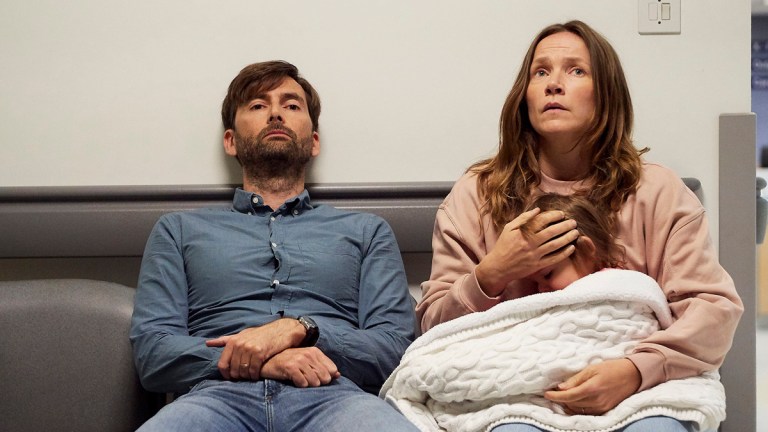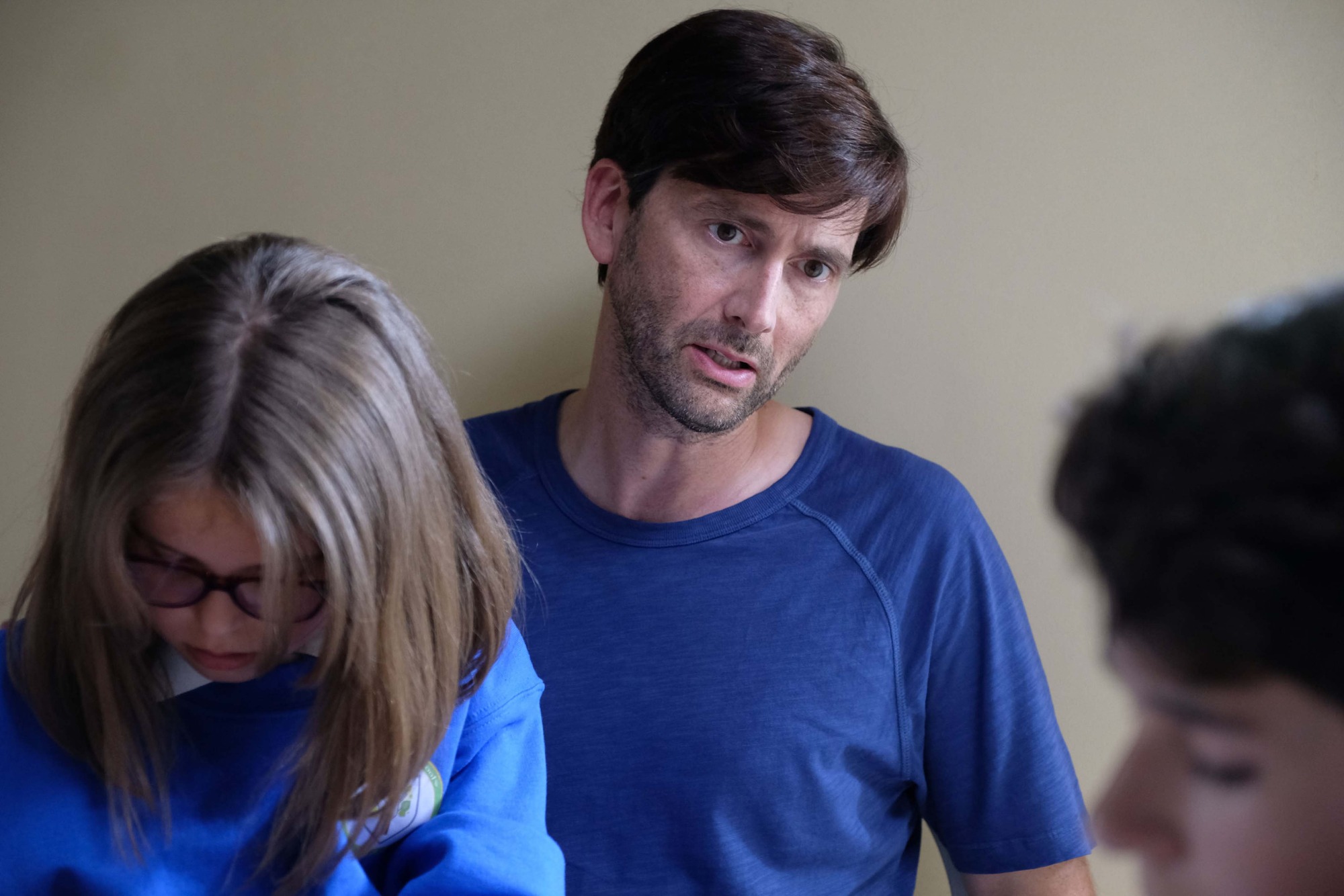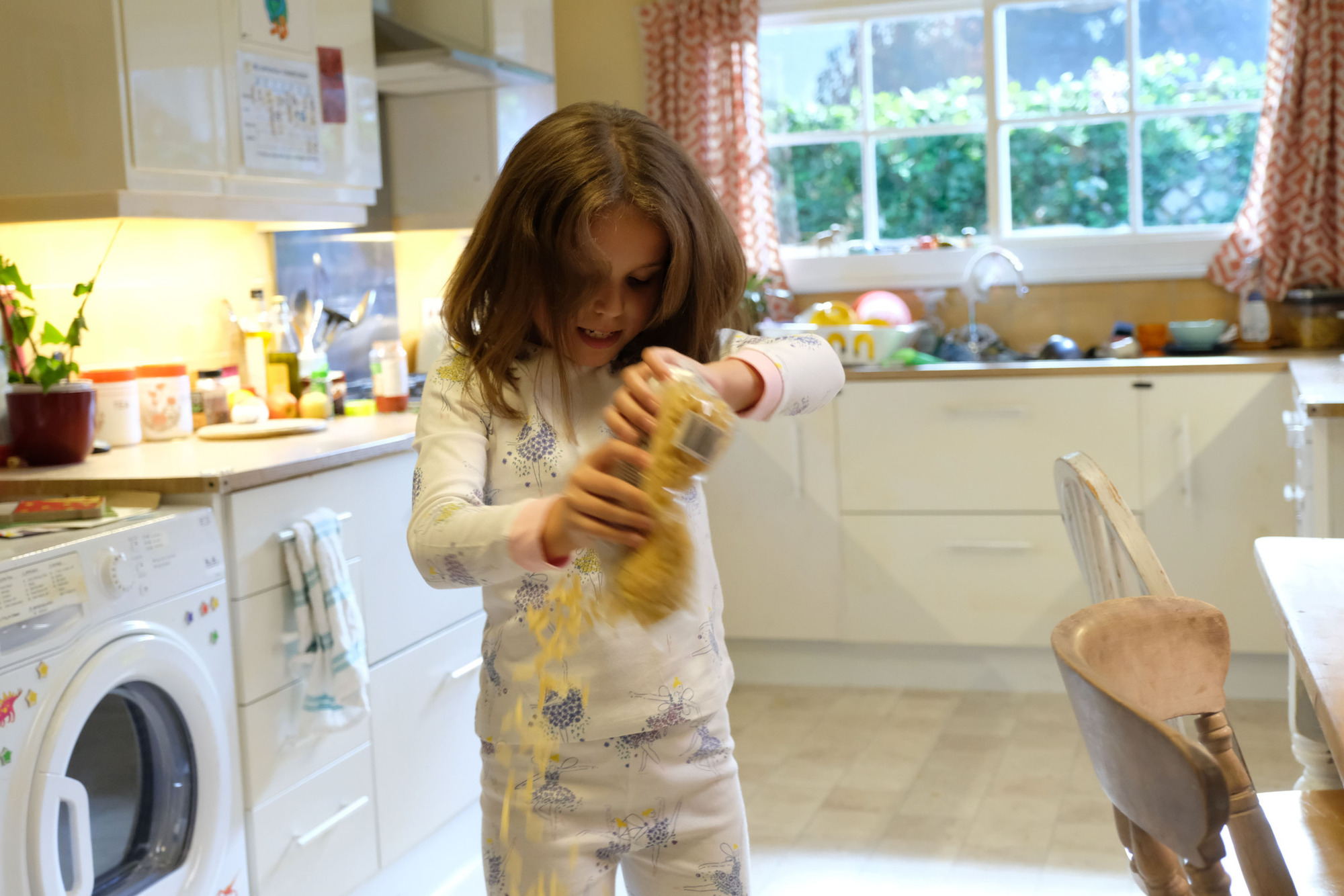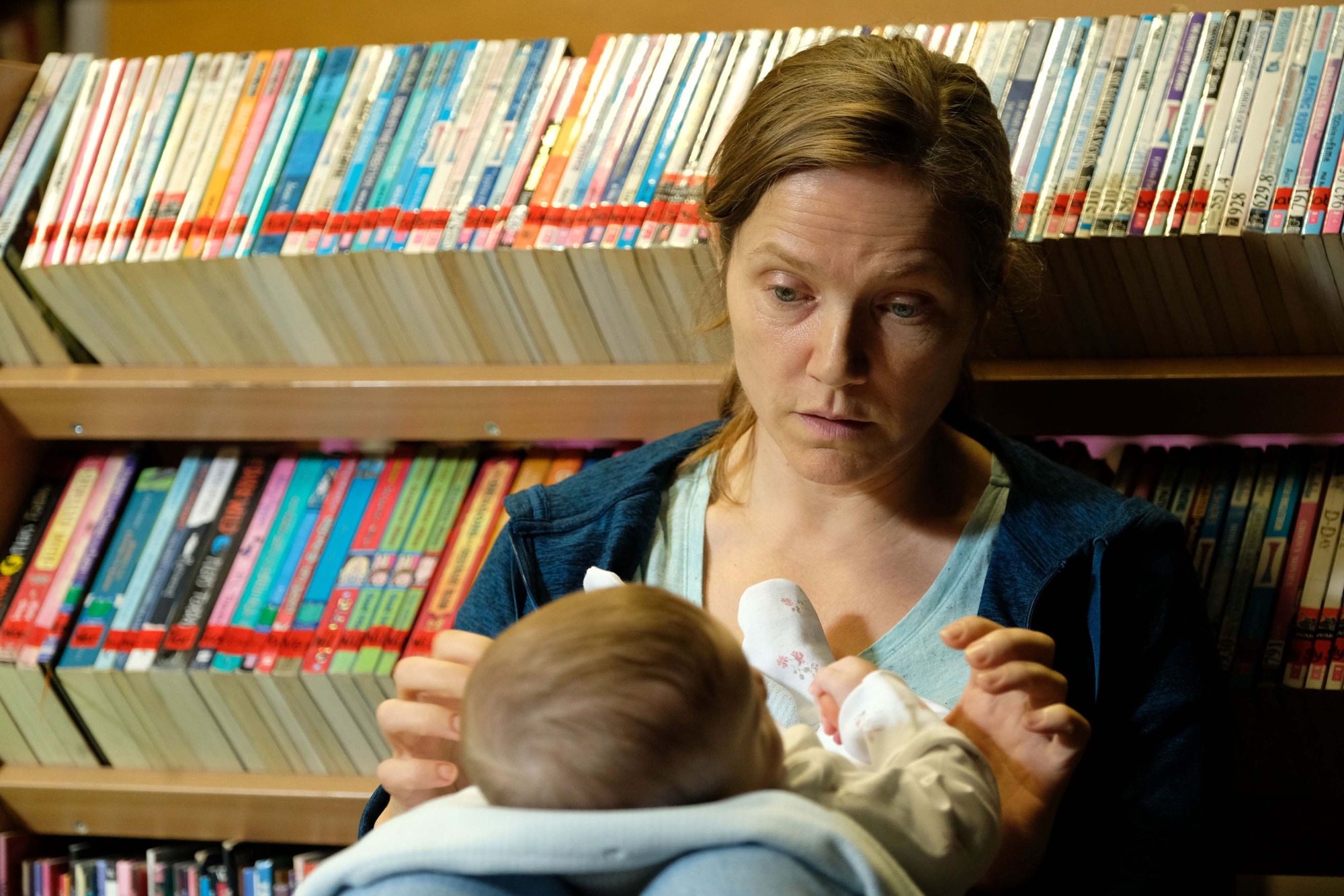There She Goes: Unsentimental, Honest, Moving Comedy Drama
Parenting comedy drama There She Goes, starring David Tennant and Jessica Hynes, is brilliantly written and performed

Storks, obviously. Rabbits. Cartoon characters with smiling buttons for faces. A puzzling preponderance of elephants. Tiny wooden pegs pegging tiny cardboard socks to glittery string washing lines. Little prams. Little shoes. Little things. This is how, in greeting card form, we mark the advent of new life. Sugary pictures of objects-in-miniature.
With new-borns, small doesn’t always equal adorable. In BBC Four comedy drama There She Goes, Emily (Jessica Hynes), an academic scientist, learns that her second pregnancy isn’t progressing at the usual rate. Her daughter’s cranial measurements are undersized. When she’s born, Rosie is smaller than usual. Rosie’s brain is smaller than usual.
They don’t sell greetings cards for when your baby is born with an abnormality. The glittery elephants tend to stay quiet around that kind of thing. It’s not only them; everyone prefers to stay quiet. Outside of cheery affirmations about love and uniqueness and it taking all sorts of different colours to make up a rainbow, nobody knows what to say.
There She Goes, created by comedy writer Shaun Pye, is going to help people know what to say. It feels as though it’s going to help people, full stop. Parents and non-parents and family members and friends, people whose fear of saying the wrong thing keeps them quiet, and people who merrily say the wrong thing because it has never occurred to them that they could be wrong. Through boldly unsentimental writing and diamond-clear truths, this five-part BBC series is going to help.
Partly, it’ll help by saying all the wrong things itself. Pye’s script, based on his and his wife’s experiences of raising their learning disabled child, is bravely unflattering at times. Despite being Rosie’s dad, Simon (David Tennant) struggles to get to grips with the up-to-date terminology for his daughter’s condition. His kind but infuriatingly capable neighbour Chris (Ben Willbond) gently corrects him when he describes Rosie as mentally handicapped rather than learning disabled. “Was what I said wrong?” says Simon, “Which one is it?”
Simon can’t remember, either because he’s knackered from attempting to wrestle a wilful nine-year-old into everyday situations like a trip to the park or the local swimming pool. Or Simon doesn’t remember because his response to the family situation has so far been an heroic attempt to drink the pub near his office dry and clear the local Spar shelves of two-for-one Echo Falls. Simon, father-of-two, magazine staffer, non-driver and a king of hiding his problems under cruel jokes and an excess of units per week, is rarely seen without a glass of red or a pint of Kronenbourg.

At least, he is in the early days. There She Goes is structured between two timelines, one in 2006 immediately after Rosie’s birth as Emily and Simon both react to the unavoidable fact that their daughter is different, and one a decade later, when she’s a robust nine-year-old creating daily havoc. Not delightful aren’t-they-a-handful havoc, but holes-in-walls, bathroom-flooding, peace-destroying havoc.
The split timeline is an excellent conceit that provides built-in reassurance. The 2006 strand is so full of pain that it alone would undermine the show having any claim to comedy. The 2016 strand, while no picnic, is lighter and warmer and characterises Rosie as much more than simply an absence of ‘normality’.
2016 Rosie (Miley Locke) is like a lot of nine-year-olds in that she’s a pain in the arse who wants her own way. She’s also unlike a lot of nine-year-olds in that she’s non-verbal, unable to feed herself, and requires almost constant supervision. Locke isn’t learning disabled but is an extraordinary young actor (the creators were advised that the requirements of filming ruled out the option of casting a child with a condition like Rosie’s). She gives an uninhibited performance that, with Pye’s clever script, makes Rosie anything but an object of pity.

Empathy, not pity, is what Pye’s scripts create. Their willingness to tell the unpolished truth about the couple’s guilt and fear and isolation (Emily) and failings (Simon) is hallelujah-worthy. The truths expressed in the writing and performances are sometimes terrible but entirely recognisable.
The humour is dark, it may even shock even, but like any head-on comic confrontation of a difficult topic, it feels like a blessed pressure-valve release. 2016 Rosie is deeply loved—not a given in the 2006 timeline—and if her family joke about her, it’s to help them cope and never to be cruel.
The two leads—Hynes and Tennant—are excellently cast. Their comic instincts make Emily and Simon witty and funny to be around, while their dramatic instincts betray human weakness and strength with every line. One scene, in which the two argue about Emily’s scientific determination to solve the problem of Rosie’s diagnosis, knocked the wind out of me. “Why don’t you just leave?” says a reeling-drunk Simon. “Oh I will, I will Si” says Emily. “It’s just not top of my list. It is on my list though.” As Emily, whether resentful and at her wits’ end that nobody is hearing what she’s saying, or solving parenthood like it’s an equation, Jessica Hynes is exceptional.

Scenes like the above make the switch to 2016, in which Emily didn’t leave, and Simon stopped hiding his sheer terror of their situation behind booze and trite declarations of unwavering love for the baby he doesn’t have a bloody clue how to cope with, a comfort.
However hard parts of it are, There She Goes is a comfort. Because, with a light touch and without ever landing on sentimentality or cliché, it shows that people are adaptable. Unbearable situations can change. Ways to cope can be found.
It was made for BBC Four, but it should air on BBC One to be seen by as many people as possible. Its comedy may unsettle, but There She Goes will help people. It might help them know what to write on the glittery elephant greetings cards and what to say to parents in similar situations.
More importantly though, it might help us to stop judging families like Rosie’s, to stay quiet on how they parent their children, and to listen.
There She Goes series one is available on BBC iPlayer.
